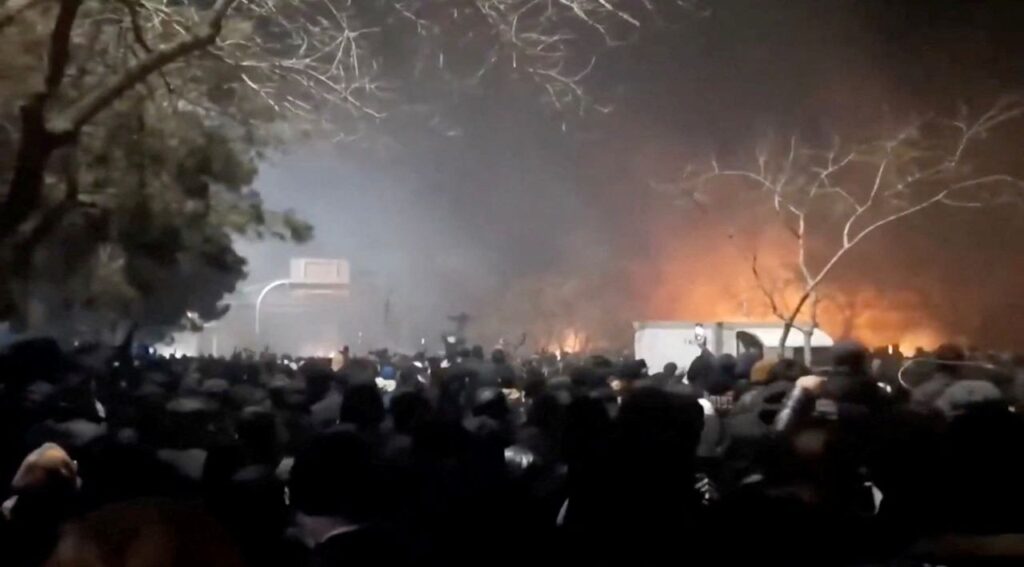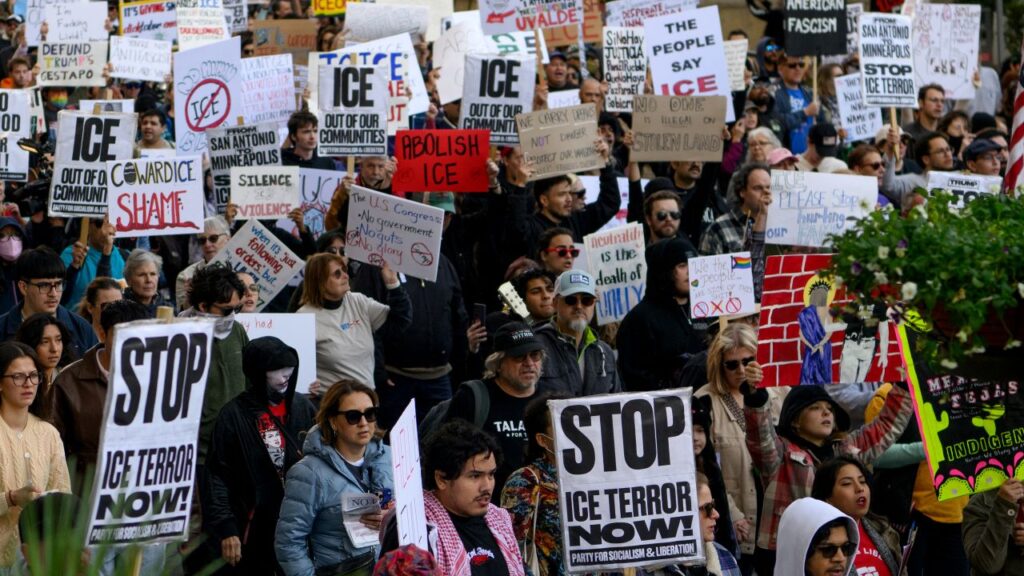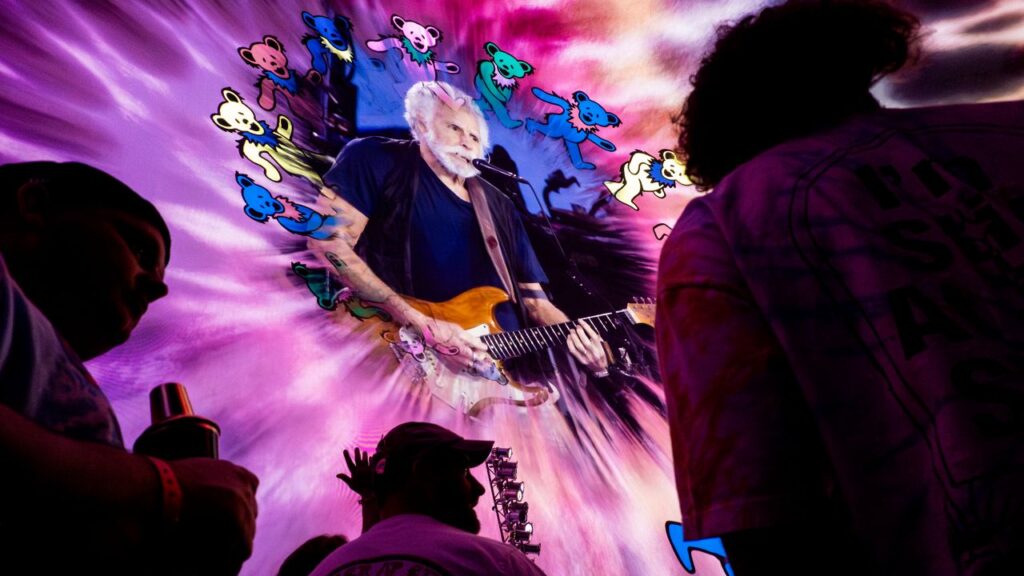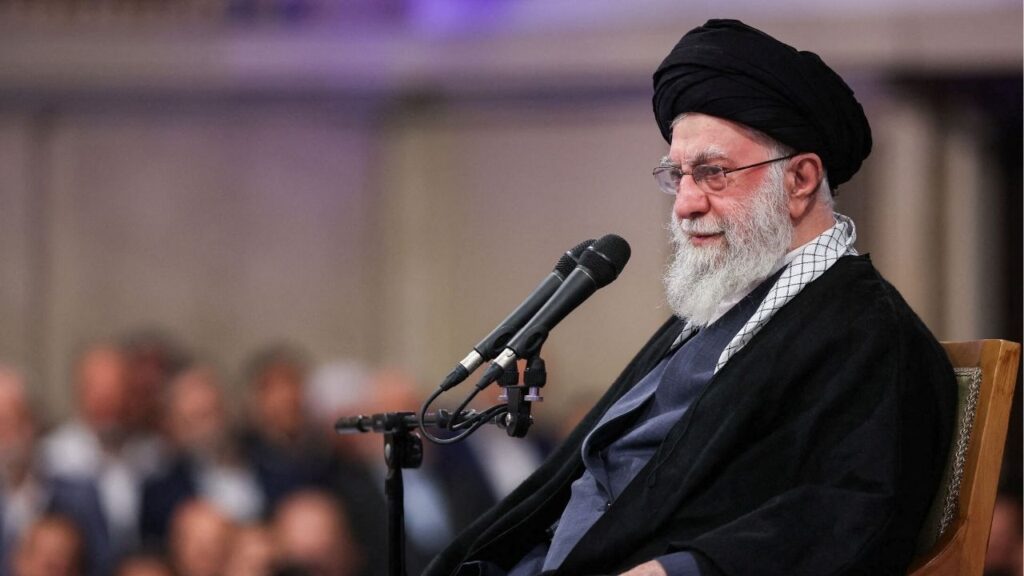Supreme Court ruling allows cities to enforce bans on homeless outdoor sleeping, sparking debate on public policy responses. (AP File)

- Supreme Court's 6-3 decision permits cities to enforce bans on homeless sleeping outdoors.
- Justice Gorsuch suggests a "necessity defense" for those with no choice but to sleep outside.
- Ruling impacts Western states, with bipartisan leaders arguing against bans on outdoor encampments.
Share
|
Getting your Trinity Audio player ready...
|
WASHINGTON — The Supreme Court decided on Friday that cities can enforce bans on homeless people sleeping outdoors, even in West Coast areas where shelter space is lacking. The case is the most significant to come before the high court in decades on the issue and comes as a rising number of people in the U.S. are without a permanent place to live.
In a 6-3 decision along ideological lines, the high court reversed a ruling by a San Francisco-based appeals court that found outdoor sleeping bans amount to cruel and unusual punishment. The majority found that the 8th Amendment prohibition does not extend to bans on outdoor sleeping bans.
Public Policy Responses to Homelessness
“Homelessness is complex. Its causes are many. So may be the public policy responses required to address it,” Justice Neil Gorsuch wrote for the majority. “A handful of federal judges cannot begin to ‘match’ the collective wisdom the American people possess in deciding ‘how best to handle’ a pressing social question like homelessness.”
He suggested that people who have no choice but to sleep outdoors could raise that as a “necessity defense,” if they are ticketed or otherwise punished for violating a camping ban.
Related Story: Homeless Advocate Argues with Bredefeld, Is Ejected From Chambers
Impact on Western States
A bipartisan group of leaders had argued the ruling against the bans made it harder to manage outdoor encampments encroaching on sidewalks and other public spaces in nine Western states. That includes California, which is home to one-third of the country’s homeless population.
“Cities across the West report that the 9th Circuit’s involuntary test has crated intolerable uncertainty for them,” Gorsuch wrote.
Homeless advocates, on the other hand, said that allowing cities to punish people who need a place to sleep would criminalize homelessness and ultimately make the crisis worse. Cities had been allowed to regulate encampments but couldn’t bar people from sleeping outdoors.
Related Story: Homelessness Funding on the Chopping Block. Will It Make the Final CA Budget?
Opposing Views on the Ruling
“Sleep is a biological necessity, not a crime,” Justice Sonia Sotomayor said, reading from the bench a dissent joined by her liberal colleagues.
“Punishing people for their status is ‘cruel and unusual’ under the Eighth Amendment,” she wrote in the dissent. “It is quite possible, indeed likely, that these and similar ordinances will face more days in court.”
The case came from the rural Oregon town of Grants Pass, which appealed a ruling striking down local ordinances that fined people $295 for sleeping outside after tents began crowding public parks. The U.S. 9th Circuit Court of Appeals, which has jurisdiction over the nine Western states, has held since 2018 that such bans violate the Eighth Amendment in areas where there aren’t enough shelter beds.
Attorney Theane Evangelis, who represented Grants Pass before the high court, applauded the ruling, saying the 9th Circuit decision had “tied the hands of local governments.”
“Years from now, I hope that we will look back on today’s watershed ruling as the turning point in America’s homelessness crisis,” she said.
Related Story: How Shots Instead of Pills Could Change California’s Homeless Crisis
Increasing Homelessness in the United States
Friday’s ruling comes after homelessness in the United States grew a dramatic 12% last year to its highest reported level, as soaring rents and a decline in coronavirus pandemic assistance combined to put housing out of reach for more people.
“Policymakers must focus on real solutions like rental assistance, cash supports, and strong, flexible community services that are proven to end homelessness and stabilize people with low incomes in housing,” said Peggy Bailey, executive vice president for policy and program development at the Center on Budget and Policy Priorities.
More than 650,000 people are estimated to be homeless, the most since the country began using a yearly point-in-time survey in 2007. Nearly half of them sleep outside. Older adults, LGBTQ+ people and people of color are disproportionately affected, advocates said. In Oregon, a lack of mental health and addiction resources has also helped fuel the crisis.



















